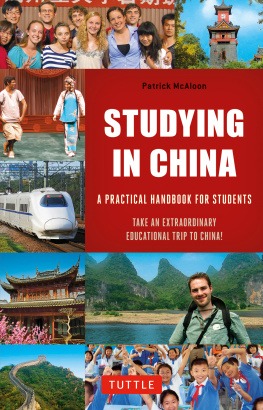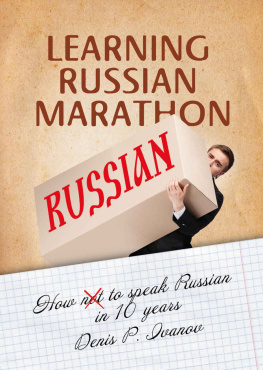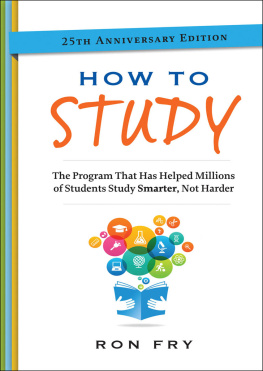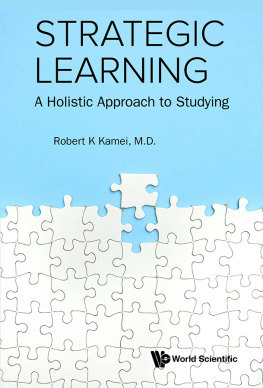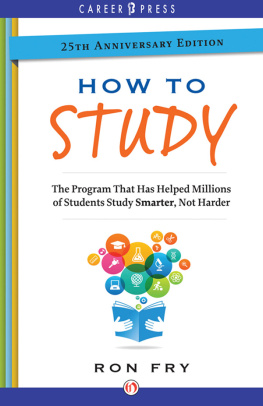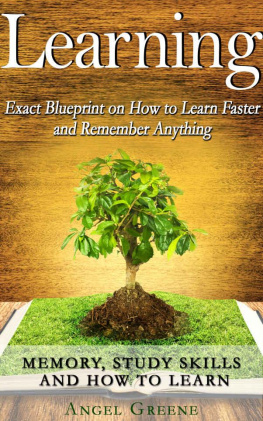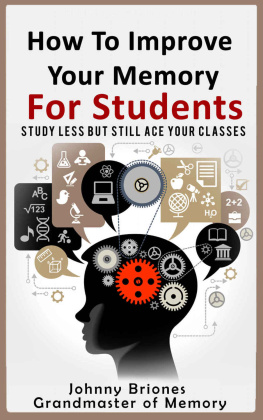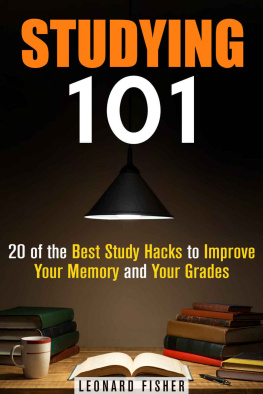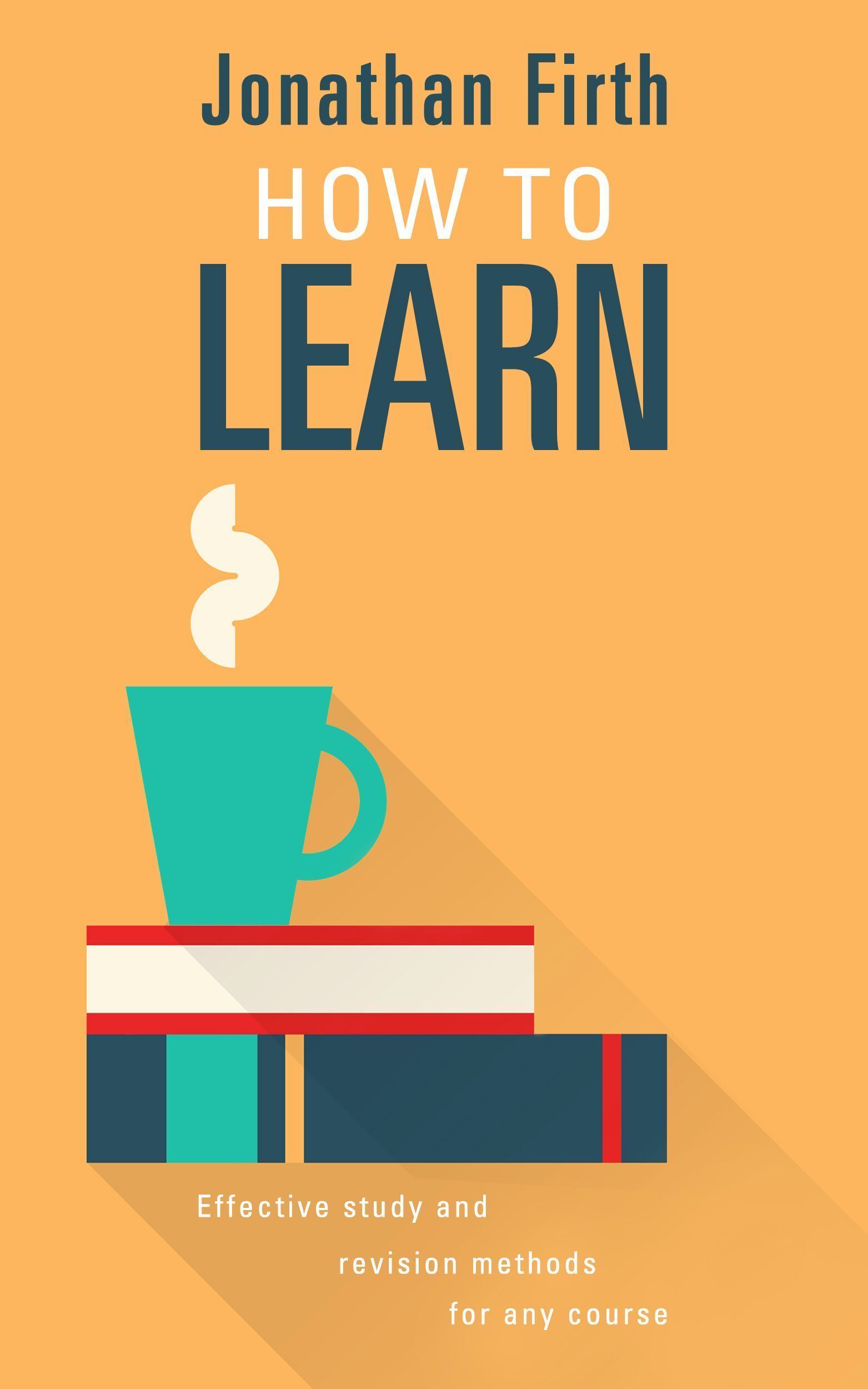Jonathan Firth
How to Learn
Effective study and revision methods for any course
First published by Arboretum Books 2018
Copyright 2018 by Jonathan Firth
All rights reserved. No part of this publication may be reproduced, stored or transmitted in any form or by any means, electronic, mechanical, photocopying, recording, scanning, or otherwise without written permission from the publisher. It is illegal to copy this book, post it to a website, or distribute it by any other means without permission.
Jonathan Firth asserts the moral right to be identified as the author of this work.
Jonathan Firth has no responsibility for the persistence or accuracy of URLs for external or third-party Internet Websites referred to in this publication and does not guarantee that any content on such Websites is, or will remain, accurate or appropriate.
First edition
This book was professionally typeset on Reedsy
Find out more at reedsy.com
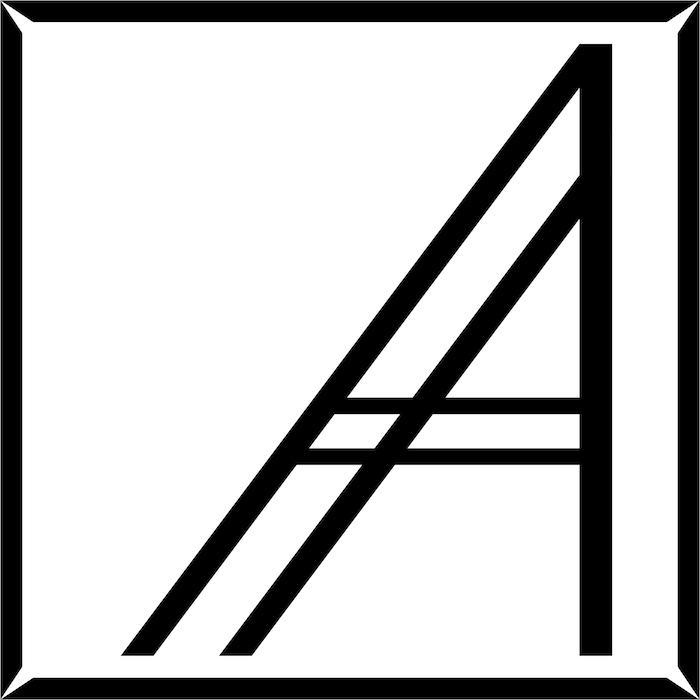
About the author
Jonathan Firth is an author, researcher, psychology teacher and teacher trainer. He writes books and resources for both students and teachers, including psychology textbooks for high school level. His most recent publications include Psychology in the Classroom (2018, published by Routledge), and AQA GCSE Psychology Revision and Practice (2017, published by Collins). Jonathan tweets at @JW_Firth and you can find out more about his latest publications via jonathanfirth.co.uk/books
Jonathan has been a teacher for over 20 years. Having spent many years working at high school level, he now teaches at the University of Strathclyde, Glasgow, Scotland. His research focuses on memory, learning, and metacognition.
Preface
I have been studying and researching the psychology of learning and memory since the 1990s. One thing that I noticed early was that even when people have learned certain facts about human memory and study skills, they fail to put these into practice the majority of the time. The more pressure they are under, the more they seem to revert to techniques which are flawed and ineffective.
To some extent this makes sense on the basis of experience and habits. As children, we learn to prepare for simple school tests the night before, and usually manage to pass the next day. This experience teaches a very powerful messagelast minute cramming works. The trouble is, such a strategy is tried and tested at the age of 12 or 13, but is simply inappropriate for the volume of material and depth of understanding needed for exam-based courses.
Its also clear that many guides to revision, while well intentioned, dont really tackle the key issues of learning, and instead focus on how to manage stress at exam time, with vague advice such as keep hydrated, and even neuro-myths such as find your learning style. My aim in writing this book is to share some of my scientific know-how in learning and memory with you, and to provide an easy-to-read book that tackles flawed learning strategies and gives a clear, evidence-based alternative that you can put into practice right away.
Unlike many study guides, this book is not full of pseudoscience, it doesnt just focus on relaxation (taking a herbal bath might be pleasant, but thats not enough to get you through your exam!) and it DOES focus on how to understand and remember more, better and for longer.
S tudy can be hard work, and yet sometimes you feel as if you are hardly making any progress. For all your effort, note-taking and time in class, you still dont really understand and remember the key information.
This can be due to the techniques and choices you make during learning and revision. You can expend a lot of effort with very little payoff if your technique is wrong. Picture a swimming poolsome people seem to glide through the water almost effortlessly, while others splash around and cover very little distance before they get tired or need a break. This is a good analogy for how different students prepare for exams.
As with so many things (diet, exercise, and so on), its not so much how much you study, as how well you study. The trouble is, most people dont actually know how to studywe have developed a set of assumptions and habits, or copied the habits of others. Perhaps parents have told us study hard or friends have given us advice on what worked for them.
As you will see throughout this book, many of these assumptions and habits are flawed. Learnerseven successful onesoften have little insight into why they are learning well, and may give advice that is unhelpful or even counterproductive. Teachers, too, for all their subject-specific expertise, often lack the psychological know-how to guide students in using their memory optimally. This is because many teachers lack a science-based understanding of how memory works (although fortunately this seems to be changing in recent years!), and therefore recommend strategies that are either flawed, or which tackle only part of the problem. For example, teachers often place a big emphasis on repetition, when (as we will see), several other factors play a bigger role in developing the memories, skills and understanding needed to get that top grade.
Changing times
In addition, the demands of study and revision change over time, meaning that study strategies will also need to change. Most people maintain the same study habits over a number of yearsperhaps you are still using the same strategies that you used in the early years of high school. But are these strategies actually effective?
To take an analogy, imagine that a surgeon or dentist is still using the same techniques that she learned in the first few months of university. She wants to be effective for her patients, but is held back by using over-simplistic, ineffective skills. The same would hold for a chef or a mechanic. It doesnt really make sense, does it? If you want to get a better result, you need to improve your technique. But most people fail to apply this to studying, in part because (as mentioned above) they tend to be unaware of what the most effective learning techniques are.
So where can we get better ideas from? One key source is the science of learning. This is a growing field, drawing on years of work by researchers from a range of disciplines including cognitive psychology, neuroscience, and education. Researchers have actually been studying learning for over a hundred years, but in the last couple of decades computer-based experimentation and other technology, combined with advances in neuroscience, have seen a real leap forward in how well scientists understand how learning works. This understanding is increasingly being applied to school and university contexts.
Can I really improve how I learn?
The simple answer is yes, you can improve the way you study. Its important to see learning as a skilla complex one. As with another skill such as cooking, you can continue producing the same basic results at your current level of ability, or you could work to develop and improve. Of course, learning a skill is not just a matter of being told a set of techniques, but involves developing a better understanding of how processes work and why certain things are necessary.
The idea that you could develop a more in-depth and effective set of learning strategies is not actually all that surprising if you think about two things. Firstly, as mentioned in the previous section, scientists have been studying learning for many decades, so there is a good deal of detailed knowledge about how learning works. Granted, its not perfect, but its increasingly sophisticated and certainly a lot better than guesswork. Secondly (for most readers), you have not previously learned how to study, at least not in a way that is informed by detailed and up-to-date learning science. To return to the cooking analogy, its like you have been shown how to use the microwave and just continue doing this repeatedly, when you could instead be learning how to make gourmet meals.


